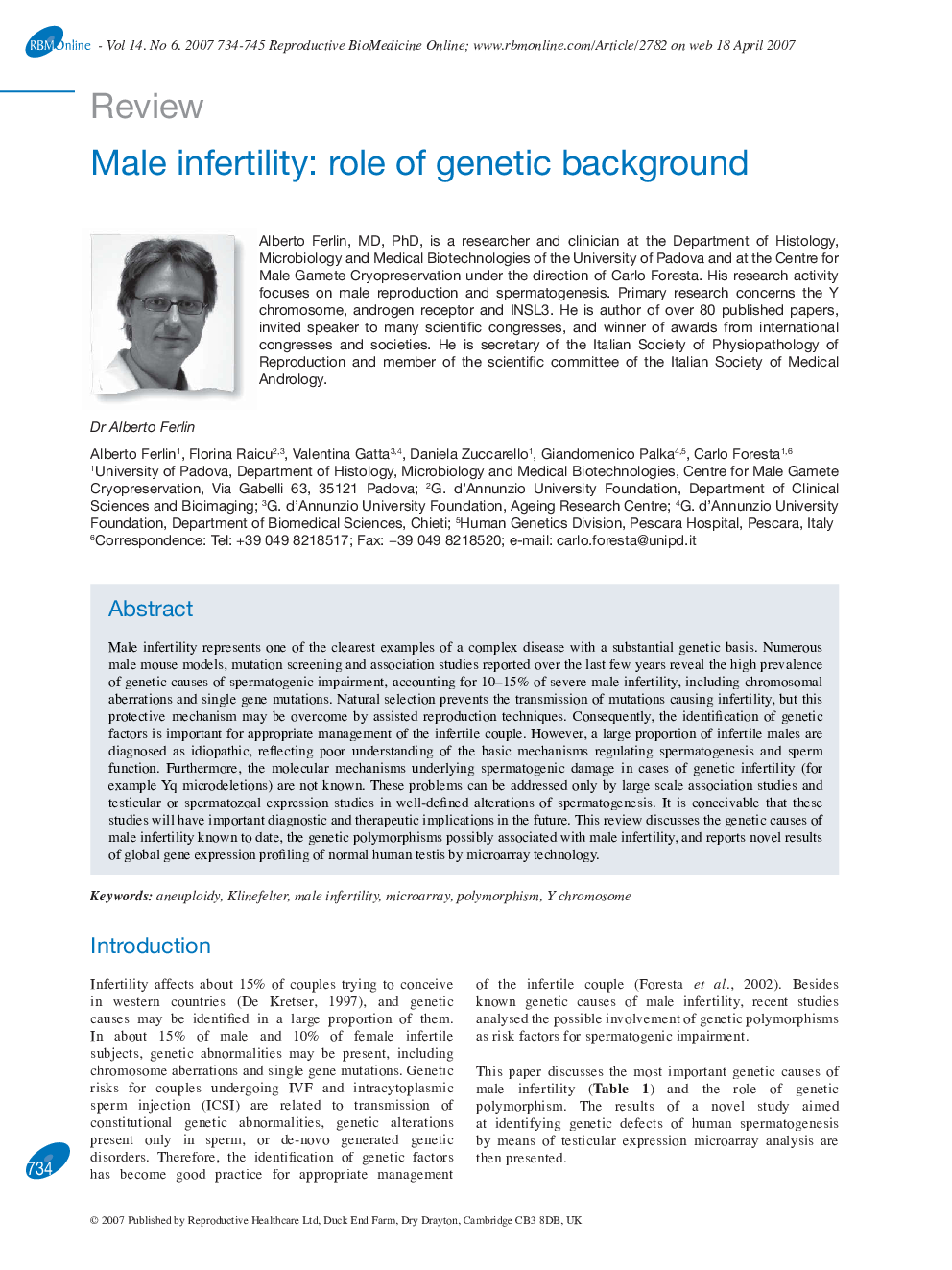| Article ID | Journal | Published Year | Pages | File Type |
|---|---|---|---|---|
| 3973462 | Reproductive BioMedicine Online | 2007 | 12 Pages |
Male infertility represents one of the clearest examples of a complex disease with a substantial genetic basis. Numerous male mouse models, mutation screening and association studies reported over the last few years reveal the high prevalence of genetic causes of spermatogenic impairment, accounting for 10–15% of severe male infertility, including chromosomal aberrations and single gene mutations. Natural selection prevents the transmission of mutations causing infertility, but this protective mechanism may be overcome by assisted reproduction techniques. Consequently, the identification of genetic factors is important for appropriate management of the infertile couple. However, a large proportion of infertile males are diagnosed as idiopathic, reflecting poor understanding of the basic mechanisms regulating spermatogenesis and sperm function. Furthermore, the molecular mechanisms underlying spermatogenic damage in cases of genetic infertility (for example Yq microdeletions) are not known. These problems can be addressed only by large scale association studies and testicular or spermatozoal expression studies in well-defined alterations of spermatogenesis. It is conceivable that these studies will have important diagnostic and therapeutic implications in the future. This review discusses the genetic causes of male infertility known to date, the genetic polymorphisms possibly associated with male infertility, and reports novel results of global gene expression profiling of normal human testis by microarray technology.
